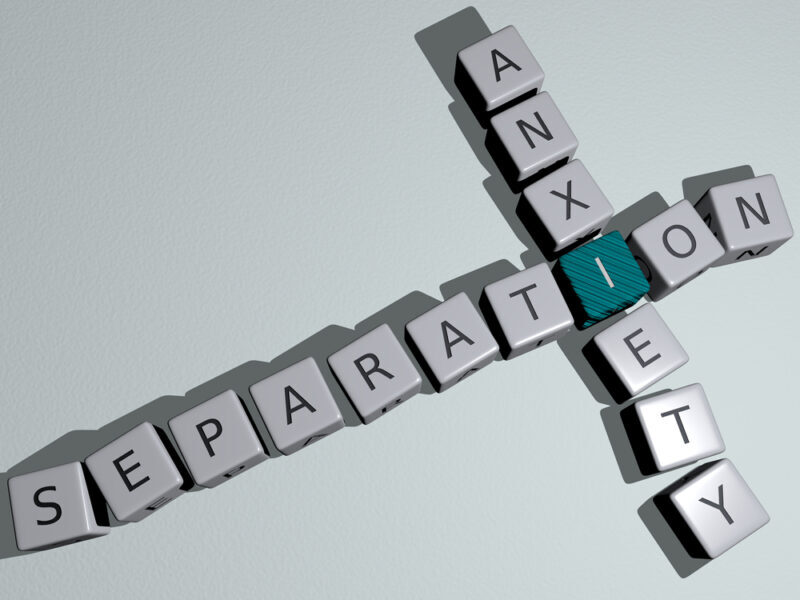Separation anxiety is when someone is afraid of being apart from or losing a parent or other attachment figure. It is a normal emotion and a regular part of development for children between the age of six months to three years. If separation anxiety continues into adulthood, it may be indicative of separation anxiety disorder. Separation anxiety disorder is a mental health illness that is listed in the Diagnostic and Statistical Manual of Mental Disorders, Fifth Edition (DSM-5). It is explained as “an exaggeration of otherwise developmentally normal anxiety manifested by excessive concern, worry, and even dread of the real or anticipated separation from an attachment figure.” Some studies have estimated that about 0.9–1.9% of adults have a separation anxiety disorder, while others estimate that it impacts around 6.6% of adults in America.
Diagnostic Criteria: Signs and Symptoms
The criteria outlined in the DSM-5 for a diagnosis of separation anxiety disorder include the following:
- Developing inappropriate and excessive fear or anxiety concerning separation from those to whom the individual is attached, as evidenced by at least three of the following:
- Recurrent excessive distress when anticipating or experiencing separation from home or from major attachment figures.
- Persistent and excessive worry about losing major attachment figures or about possible harm to them, such as illness, injury, disasters, or death.
- Persistent and excessive worry about experiencing an untoward event (e.g., getting lost, being kidnapped, having an accident, becoming ill, etc.) that causes separation from a major attachment figure.
- Persistent reluctance or refusal to go out, be away from home, go to school, go to work, or elsewhere because of fear of separation.
- Persistent and excessive fear or reluctance about being alone or without major attachment figures at home or in other settings.
- Persistent reluctance or refusal to sleep away from home or to go to sleep without being near a major attachment figure.
- Repeated nightmares involving the theme of separation.
- Repeated complaints of physical symptoms (e.g., headaches, stomach aches, nausea, vomiting, etc.) when separation from major attachment figures occurs or is anticipated.
- The fear, anxiety, or avoidance is persistent, lasting 6 months or more.
- The disturbance causes clinically significant distress or impairment in social, academic, occupational, or other important areas of functioning.
- The disturbance is not better explained by another mental disorder, such as refusing to leave home because of excessive resistance to change in autism spectrum disorder; delusions or hallucinations concerning separation in psychotic disorders; refusal to go outside without a trusted companion in agoraphobia; worries about ill health or other harm befalling significant others in generalized anxiety disorder; or concerns about having an illness in illness anxiety disorder.
Research indicates that one of the primary differences in children diagnosed with separation anxiety disorder compared to adults is the type of attachment figures involved. In children, the attachment figures are typically adults (e.g., parents), whereas adults, experience anxiety when experiencing real or anticipated separation from children, spouses, or romantic partners.
For Information and Support
Every family in need of mental health treatment must select a program that will best suit the needs of their family. When one member of a family struggles, it impacts everyone in the family unit. To maximize the benefits of treatment we work closely with the entire family to ensure that everyone is receiving the support they need through these difficult times. Seeking help is never easy, but you are not alone! If you or someone you know needs mental health treatment, we strongly encourage you to reach out for help as quickly as possible. It is not uncommon for many mental health difficulties to impact a person’s life, long term. Pursuing support at the beginning of one’s journey can put the individual in the best position to learn how to manage themselves in a healthy way so they can go on to live happy and fulfilling lives.
OUR KNOWLEDGEABLE ADMISSIONS TEAM CAN BE REACHED 24/7 AT INFO@PACIFICRTC.COM OR CALL: 800-531-5769






